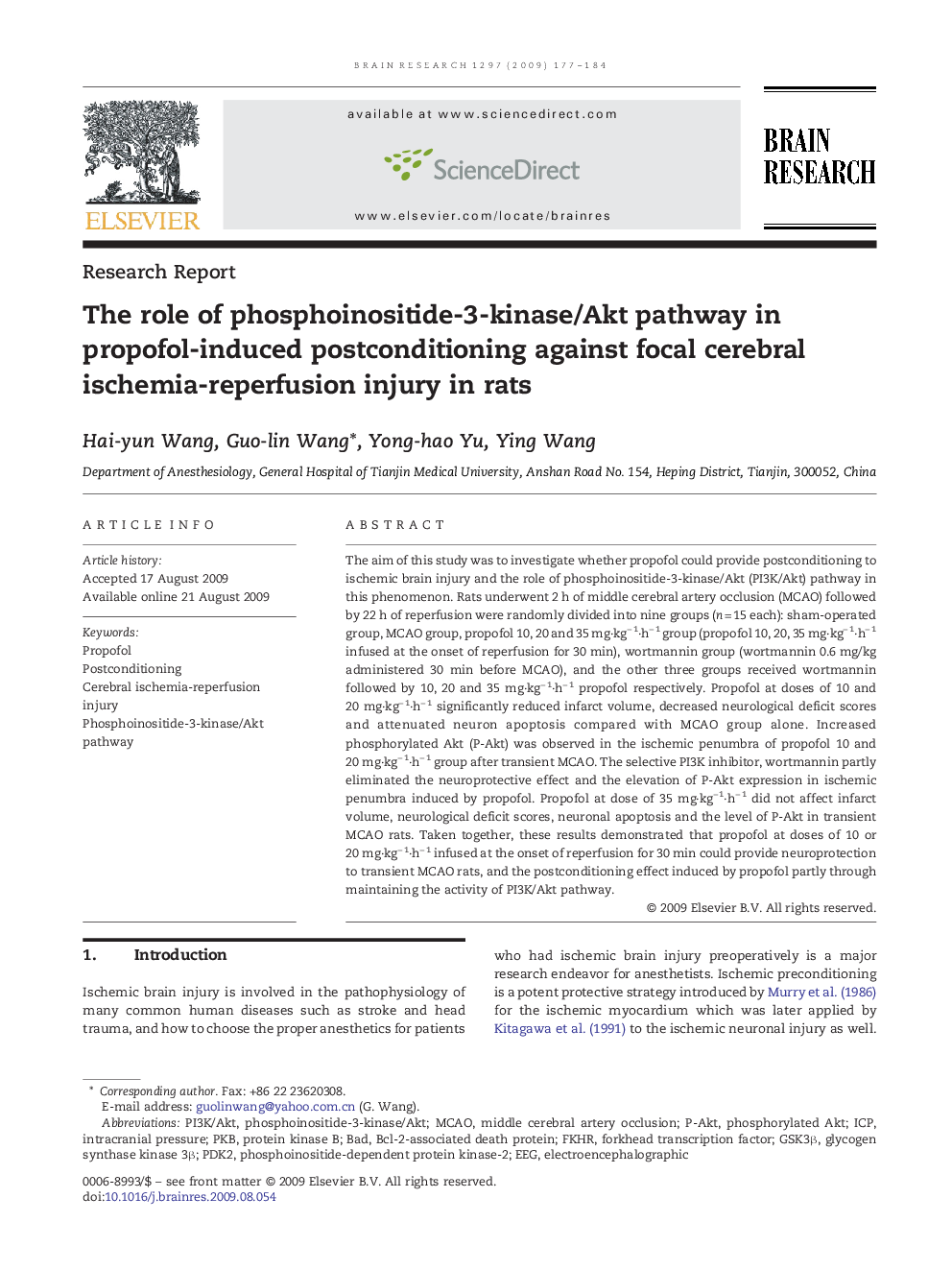| Article ID | Journal | Published Year | Pages | File Type |
|---|---|---|---|---|
| 4327813 | Brain Research | 2009 | 8 Pages |
The aim of this study was to investigate whether propofol could provide postconditioning to ischemic brain injury and the role of phosphoinositide-3-kinase/Akt (PI3K/Akt) pathway in this phenomenon. Rats underwent 2 h of middle cerebral artery occlusion (MCAO) followed by 22 h of reperfusion were randomly divided into nine groups (n = 15 each): sham-operated group, MCAO group, propofol 10, 20 and 35 mg·kg− 1·h− 1 group (propofol 10, 20, 35 mg·kg− 1·h− 1 infused at the onset of reperfusion for 30 min), wortmannin group (wortmannin 0.6 mg/kg administered 30 min before MCAO), and the other three groups received wortmannin followed by 10, 20 and 35 mg·kg− 1·h− 1 propofol respectively. Propofol at doses of 10 and 20 mg·kg− 1·h− 1 significantly reduced infarct volume, decreased neurological deficit scores and attenuated neuron apoptosis compared with MCAO group alone. Increased phosphorylated Akt (P-Akt) was observed in the ischemic penumbra of propofol 10 and 20 mg·kg− 1·h− 1 group after transient MCAO. The selective PI3K inhibitor, wortmannin partly eliminated the neuroprotective effect and the elevation of P-Akt expression in ischemic penumbra induced by propofol. Propofol at dose of 35 mg·kg− 1·h− 1 did not affect infarct volume, neurological deficit scores, neuronal apoptosis and the level of P-Akt in transient MCAO rats. Taken together, these results demonstrated that propofol at doses of 10 or 20 mg·kg− 1·h− 1 infused at the onset of reperfusion for 30 min could provide neuroprotection to transient MCAO rats, and the postconditioning effect induced by propofol partly through maintaining the activity of PI3K/Akt pathway.
